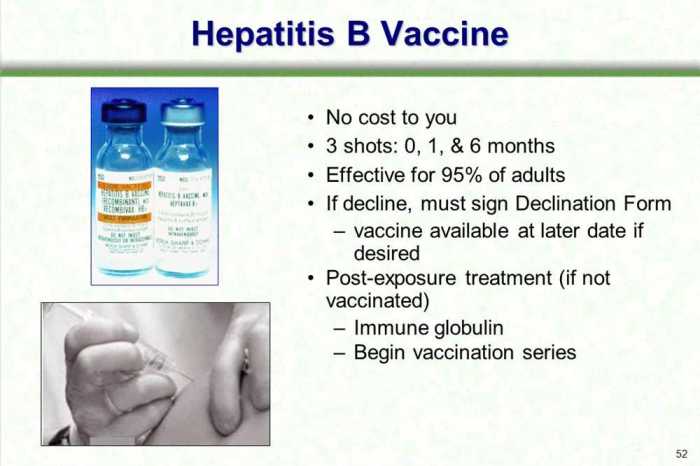Delve into the realm of bloodborne pathogens testing with our engaging bloodborne pathogens test answers true false. This comprehensive guide explores the intricacies of bloodborne pathogen testing, equipping you with a solid understanding of its procedures, interpretation, and significance.
As we navigate the complexities of bloodborne pathogen testing, we’ll uncover the essential true or false questions that challenge your knowledge and solidify your comprehension of this crucial topic.
Bloodborne Pathogens Test

Bloodborne pathogens testing is crucial for detecting and preventing the transmission of infectious diseases. This article provides comprehensive information about bloodborne pathogens testing, including its procedures, interpretation of results, importance, applications, regulations, and safety precautions.
Bloodborne Pathogens Test
True or False Questions
True or False Questions
- Bloodborne pathogens can only be transmitted through direct contact with infected blood.
- The presence of antibodies in a bloodborne pathogens test indicates a current infection.
- All healthcare workers must undergo bloodborne pathogens testing annually.
- The hepatitis B vaccine is 100% effective in preventing infection.
- Bloodborne pathogens testing is only necessary for individuals who have been exposed to blood.
Bloodborne Pathogens Test
Procedures
Procedures
- Sample Collection:Collect a blood sample from the individual being tested.
- Sample Handling:Handle the sample according to laboratory guidelines to prevent contamination.
- Sample Analysis:Use immunoassays or molecular techniques to detect the presence of antibodies or antigens specific to bloodborne pathogens.
Bloodborne Pathogens Test
Interpretation of Results
Interpretation of Results
| Result | Interpretation |
|---|---|
| Positive | The individual has been exposed to or is infected with the specific bloodborne pathogen. |
| Negative | The individual has not been exposed to or is not infected with the specific bloodborne pathogen. |
| Indeterminate | The test result is inconclusive and further testing is necessary. |
FAQ Corner: Bloodborne Pathogens Test Answers True False
What is the purpose of bloodborne pathogens testing?
Bloodborne pathogens testing identifies the presence of infectious agents in blood or other bodily fluids, such as viruses, bacteria, or parasites.
What are the most common bloodborne pathogens?
HIV, hepatitis B virus (HBV), and hepatitis C virus (HCV) are among the most prevalent bloodborne pathogens.
Who should get tested for bloodborne pathogens?
Individuals who have been exposed to blood or other potentially infectious materials, such as healthcare workers, first responders, and laboratory personnel, should consider getting tested.

